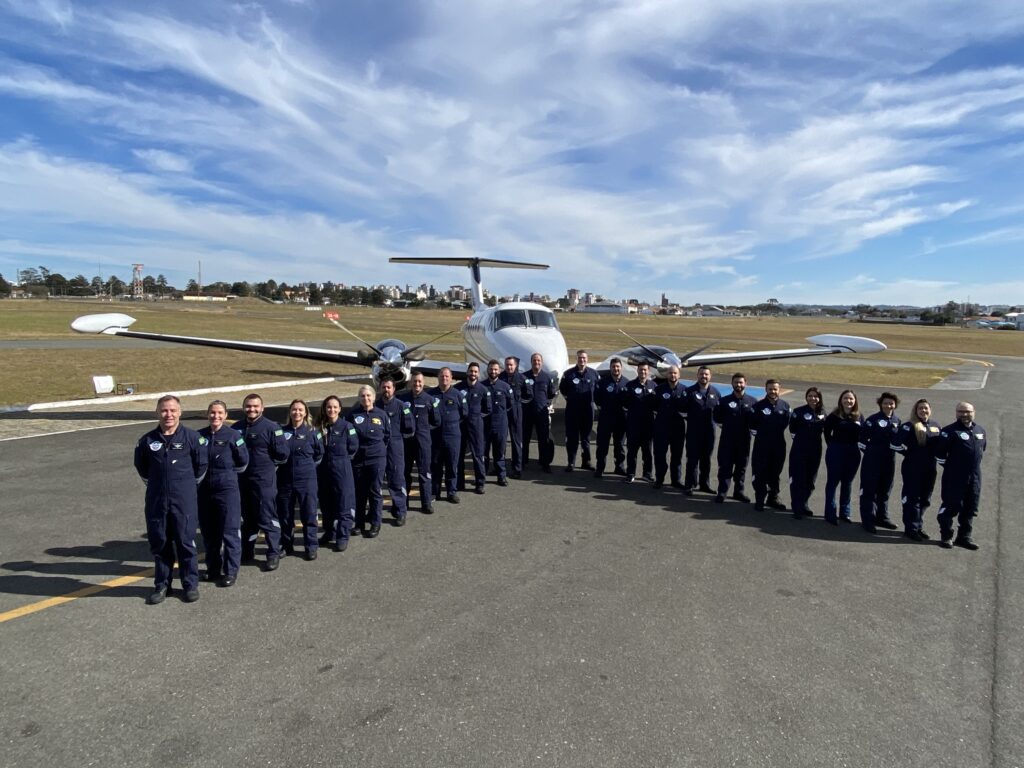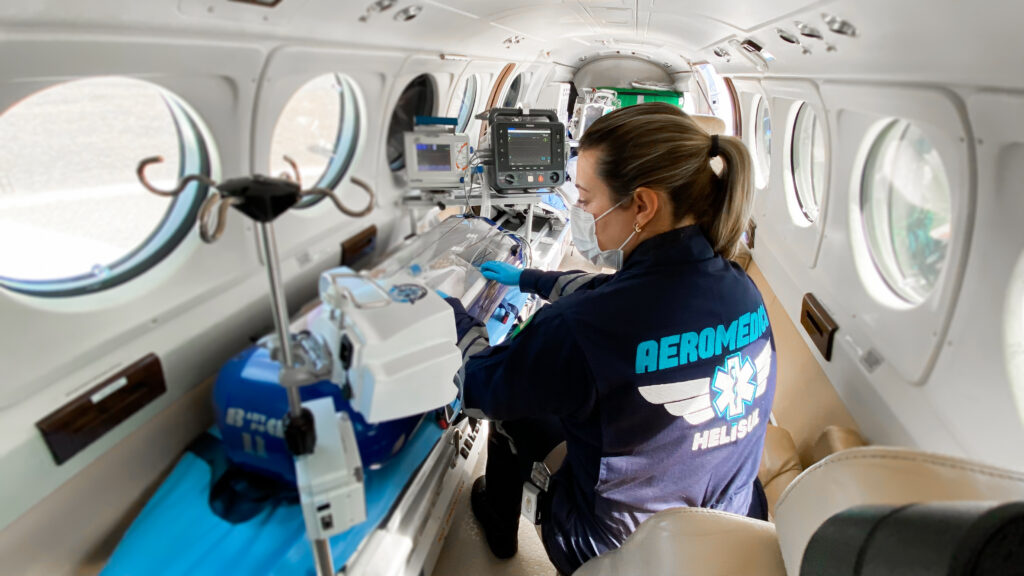Helisul Aviação’s aeromedical transport service has been offered since 2012, and began with fixed-wing aircraft (airplanes). In these almost ten years of operations, the company reached, on December 27, the mark of 3 thousand flights carried out by planes, in the care of all types of patients; from the newborn to the elderly, and the most varied pathologies, such as heart diseases, neurological diseases, traumas and others.
In the period between August 2020 and December 2021, the search for the transfer of private patients by plane grew by 20%, according to the Aeromedical Department of Helisul. The increase was driven by the beginning of the period considered the most critical of the covid-19 pandemic in Brazil, since the arrival of the health crisis in the country.
In the 12 months of 2020, 295 air medical transport flights were performed by fixed-wing aircraft. In 2021, there were 335, according to the Helisul database. The company carries out an average of 30 to 35 transports of patients per month per aircraft, which is equivalent to an annual total of around 350 transfers.
Most of the time, the service is requested by family members or indicated by the doctor responsible for the patient at the time of origin, explain the department coordinators, Dr. Felipe Novak and nurse Marcio Metze Weinhardt.
According to them, once the need for hospital unit transfer is defined, the procedure begins via telephone contact, for the collection of detailed information on the patient’s condition, such as anamnesis, laboratory and imaging tests.
“If the patient presents safe conditions for transport by plane, it is carried out with the Air ICU”, says Dr. Philip Novak.
The Air ICU is usually used by patients hospitalized in hospital units, most of the times of low complexity, and who do not have the capacity to offer all the necessary support for the treatment that the patient needs. Therefore, air transport is requested to a hospital unit that can handle more complex cases.
Planes equipped with air ICUs take off to answer calls from the Helisul base at Bacacheri Airport, in Curitiba. The crews are composed of two pilots, a doctor and a nurse, duly qualified for the work of aeromedical assistance.
Fixed wing x rotary wing
Fixed-wing aircraft are indicated for service at distances greater than 250 kilometers. They have better conditions for traveling in bad weather and have cabins with more interior space compared to helicopters. Due to these characteristics, they are more appropriate to allow the medical team to apply monitoring techniques and perform procedures in flight, helping in the treatment of the patient even before reaching their destination.
Helisul’s air medical transport service also offers rescues and transfers via helicopters. Since the beginning of operations with rotary wings (helicopters) in 2014, almost 10,000 flights have been performed. They departed from the bases of Cascavel, in the West (3,100), Londrina (2,700), Maringá (3,050) and Ponta Grossa (1,000).
Helicopter teams are made up of a pilot, a doctor and a nurse. These are mixed teams, which include pilots from Helisul and the Military Police Battalion for Air Operations (BPMOA), with doctors and nurses from SESA. This same extremely successful operating model is being analyzed for use in other states.
The services provided by Helisul with rotary-wing aircraft help land rescue teams in car accidents, trauma or primary care for clinical emergencies in places of difficult access.
“Helicopters carry out rescues for victims of trauma and in cases of clinical care shortage [when there are no vacancies], providing primary care and supporting fixed and/or mobile pre-hospital units”, explains Marcio Metze Weinhardt.
In the same way, inter-hospital transport of patients is carried out, so that they reach the places with the best availability of resources, in the shortest possible time, thus being able to start treatment quickly to improve the prognosis.
“The Helisul aircraft also carry out the transport of organs for transplants, making them reach the recipients healthy and suddenly, thus reducing the patient’s anguish and the family’s anxiety”, adds the Helisul nurse-coordinator.
Service security
All the health teams of the Paraná-based company Helisul have not only previous experience in pre-hospital land care, but also full knowledge of the norms and routines, with medical support operator (OSM) courses recognized by the National Civil Aviation Agency (ANAC).
“The fixed-wing aircraft health team specializes in rescue and aeromedical transport, the pilots have training and courses updated by ANAC and all aircraft are homologated by the Agency”, reinforces Dr. Philip Novak.



